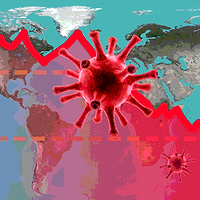The Impact of COVID-19 on Food Safety Risks and Recalls

The number of food recalls has risen over recent years, with the exception of a decline in incidents through the coronavirus disease 2019 (COVID-19) outbreak. Such recalls can be a costly business. The resulting disruption in operations while managing the recall, the direct cost of recalling stock, and the indirect costs caused by the knock-on effects, such as reputational damage, can result in significant long term financial losses for a company from loss of sales.
The average cost of a recall to a food company is around $10M in direct costs, including brand damage, lost sales, response team set-up, press activities and other fixed costs, according to a joint U.S.-based study by Food Marketing Institute and the Consumer Brands Association (formerly the Grocery Manufacturers Association). Analysis of product recall insurance claims in the food and beverage sector by Allianz Global Corporate & Specialty shows a similar experience with the cost of the average large claim around $9.5mn (€8mn).
Product recalls are increasing in both the United States and the UK—58 percent of companies have been impacted by food recalls, according to one report—but also elsewhere in the world due to factors like just-in-time global manufacturing in which recalls can rapidly go global, fewer suppliers and complex supply chains that increase food safety risks if one supplier has a contamination issue, improved technology that allows for better traceability and pathogen detection, and stricter regulatory enforcement globally. Social media can also exacerbate product recalls if it is not well managed and can be used as an outlet for disgruntled groups, but it can also be useful in alerting customers to an issue early on.
It’s important that manufacturers recognize these factors and, especially, that they are diligent about who their suppliers are. Insurers want to know how long they’ve had a relationship with their suppliers, because they should know what they’re doing through regular audits. Time and cost pressures can create a crunch that means corners might get cut all the way down the chain. As pressures rise, quality may fall—and an exposure is born. We counsel companies to test all raw materials to the best of their ability and not to release them into the facility until test results come in.
Due to COVID-19, the insurance market has seen increased business interruption claims where restaurant foodborne illness policies may include explicit cover for contagious disease, which would be sublimited.
For companies restarting or ramping up their production—whether to catch up on lost business or because of increased demand, for example, snack foods, which in some areas, have seen consumption levels soar during lockdown—there will be risks to consider. Some of the questions to address include:
• Does the company have the workforce capability to cope with an increase in production?
• Can its supply chain react to the increased demand without cutting corners, ensuring their raw materials or products are free from contamination?
• Will Standard Operating Procedures and Good Manufacturing Practices still be adhered to with respect to hygiene?
• What social distancing measures are in place?
The ability of the regulatory agencies and public health officials to detect problems has been reduced during the pandemic, but post-pandemic, there is likely to be a return to the normal detection of issues—especially those related to foodborne illness.
With very dramatic increases in hygiene standards—not only within manufacturing, but in every aspect of society—cross-contamination risks, which are a major cause of food and beverage recalls may decrease in future. However, with new operations, closed factories, remote workforces, weakened quality checks, decreases in regulatory visits, and erratic supply chains, risk exposures could also swell moving forward. All these factors can create errors, and a mistake in production can leave a product contaminated, dangerous and or defective.
Stewart Eaton is head of Global Crisis Management, Recall, at Allianz Global Corporate & Specialty.
Looking for a reprint of this article?
From high-res PDFs to custom plaques, order your copy today!






